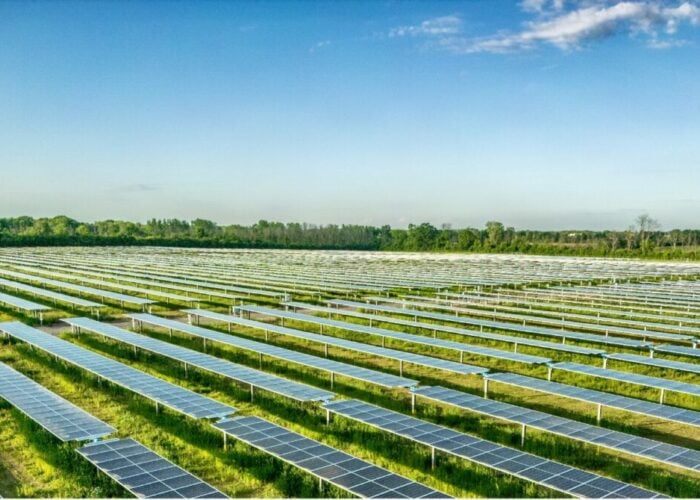
A new study has predicted solar will become the undisputed top global energy employer by 2050, spearheading a renewables job boom as fossil fuel industries shed millions of workers.
Renewables will grow to host 80% of all direct energy sector jobs by 2050 – from 28% in 2015 – as the fossil fuel and nuclear industries decline worldwide from a 70% to a 3% share over the period, according to scientists from Finland’s Lappeenranta University of Technology (LUT).
Try Premium for just $1
- Full premium access for the first month at only $1
- Converts to an annual rate after 30 days unless cancelled
- Cancel anytime during the trial period
Premium Benefits
- Expert industry analysis and interviews
- Digital access to PV Tech Power journal
- Exclusive event discounts
Or get the full Premium subscription right away
Or continue reading this article for free
In a new report, the researchers predicted solar will overwhelmingly lead the mid-century green energy job boom, itself driven by the world’s shift to a fully renewable electricity system in line with climate change goals.
According to their estimates, solar PV would account for 22.2 million of all 34 million direct energy sector jobs created by 2050. It would be followed by energy storage (4.5 million), bioenergy (2.3 million), hydropower (1.9 million jobs) and wind energy (1.4 million).
LUT’s analysis indicates solar would top energy sector job charts (see table below) across key global regions by 2050, from Europe to America, Asia, Africa, the Middle East and North Africa (MENA), as well as the so-called SSARC group of India, Pakistan and others.
Jobs created by solar and storage across key world regions by 2050
| Region | PV jobs created by 2050 (out of all energy jobs created) | Storage jobs created by 2050 (out of all energy jobs created) |
|---|---|---|
| Europe | 1.73 million (3.4 million) | 277,000 (3.4 million) |
| North America (US, Canada, Mexico) | 1.62 million (2.7 million) | 330,000 (2.7 million) |
| Rest of America | 930,000 (1.6 million) | 202,000 (1.6 million) |
| SSARC (iincludes India, Pakistan, Bangladesh) | 4.18 million (5.8 million) | 894,000 (5.8 million) |
| Northeast Asia (includes China, Japan, Korea) | 6.7 million (10 million) | 1.3 million (10 million) |
| Southeast Asia (includes Australia, New Zealand) | 2.1 million (3.2 million) | 414,000 (3.2 million) |
| Middle East and North Africa | Nearly 1 million (1.7 million) | 193,000 (1.7 million) |
| Sub-Saharan Africa | 3.5 million (5.5 million) | 862,000 (5.5 million) |
| Global total | 22.2 million (34 million) | 4.5 million (34 million) |
Source: LUT, ScienceDirect, Elsevier
As they predicted a PV-led energy job market, the researchers also noted the employment potential they think the industry already holds. They pointed at the case of US solar workers, who they said outnumber coal’s two to one even if the fossil fuel industry accounts for more capacity (26% to 1%).
The scientists anticipated an initial wind power job creation rush – with 7.3 million new workers in the 2020-2030 period – but said the industry would stabilise in the following decades, falling behind a “more cost-effective” solar PV as the top renewable employer.
First probe into storage jobs predicts worldwide surge
The LUT analysis claims to be the first to offer forecasts around the workforce the energy storage sector will grow to employ worldwide, all the way to 2050.
The Finland-based researchers used what they labelled the “LUT Energy System Transition modelling tool” as the basis for predictions that the segment will have created 4.5 million jobs by mid-century, with workforces (see table above) growing across all markets.
“The results indicate that job losses in fossil fuels and nuclear power sectors are more than outweighed by the job creation in renewable power generation and storage sectors,” the scientists said, predicting the segment to create around 17% of all new energy jobs already by 2030.
The results, the LUT team said, illustrate that a global shift to full renewable electricity system can help enable “stable economic growth” and curb youth joblessness across developing nations. Green energy jobs could catalyse gains in social wellbeing and political stability worldwide, they said.






